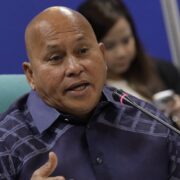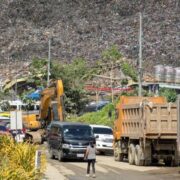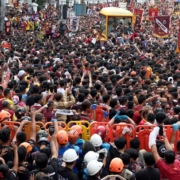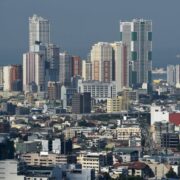Uneven treatment of private employees

Acting on the request of the BPO Industry Employees Network, Labor Secretary Bienvenido Laguesma ordered an investigation of business process outsourcing (BPO) companies for possible labor law violation when they had required their employees to report for work while Typhoon “Uwan” (international name: Fung-wong) raged the other week.
In response, the organization of BPO companies said their operation was necessary because they had to meet the demands of international clients, particularly in relation to health care and banking.
Recall that at that time, the Office of the President issued a memorandum circular suspending government work and classes at all levels in parts of the country that were expected to get hit by the typhoon.
But with regard to employees in the private sector, the circular left it to the discretion of management to decide on whether or not to suspend their operations. With some operational adjustments, the BPO companies opted to do business as usual.
Laguesma’s action has brought to the fore (once more) the difference in treatment by the national government of public and private employees whenever natural calamities hit the country.
When that happens, work in government offices is automatically called off except for those assigned to safety or relief operations. The rule of thumb on a government employee’s pay when work is suspended by government fiat is that his or her salary remains intact.
Not so in the private sector, where the standing policy is “no work, no pay.” Failure to report for work during natural calamities may or may not result in salary deduction, depending on the company’s policy or the collective bargaining agreement, if there is one.
The work absence may be charged to the employee’s vacation leave benefits or be covered through unpaid overtime work.
The question is posed: Why are private employees treated differently by the government with regard to work attendance and personal safety in times of calamities?
The risks to the lives of government and private employees who live in places affected by weather disturbances are the same. The rains and floods that accompany those phenomenon do not take into consideration the nature of the employment of the people whose places they may cross.
To put it bluntly, there is absolutely no difference in the threat to life and property of government and private employees when Mother Nature decides to flex its muscle with damaging ferocity.
By giving government employees that unsolicited leave, the impression is created that life can go on even if government services (except those related to safety and relief operations) are suspended, but it would otherwise be adversely affected if private businesses cease their operations for the time being.
Going back to the BPO employees’ complaint, they have no reason to question the validity of the decision of some BPOs to continue their operation despite the inclement weather because the government left that matter to their discretion without providing any parameters for its exercise.
By doing that, the government recognizes the right of private businesses to operate in the manner they wish to operate as long as they do not violate any labor regulations.
Note that although physically located here in the Philippines, the business of BPO companies is primarily attuned to people who live elsewhere in the world, that may not be subject to the natural calamities that the country goes through with alarming frequency.
An essential element of efficient BPO operation is reliability, that is, its services are available when its clients or customers need them any time of day or night.
If every time a severe weather disturbance hits the country and BPO work is suspended to align it with government work, we can kiss goodbye the employment opportunities that BPOs directly and indirectly provide to millions of Filipinos.


















When development ignores power